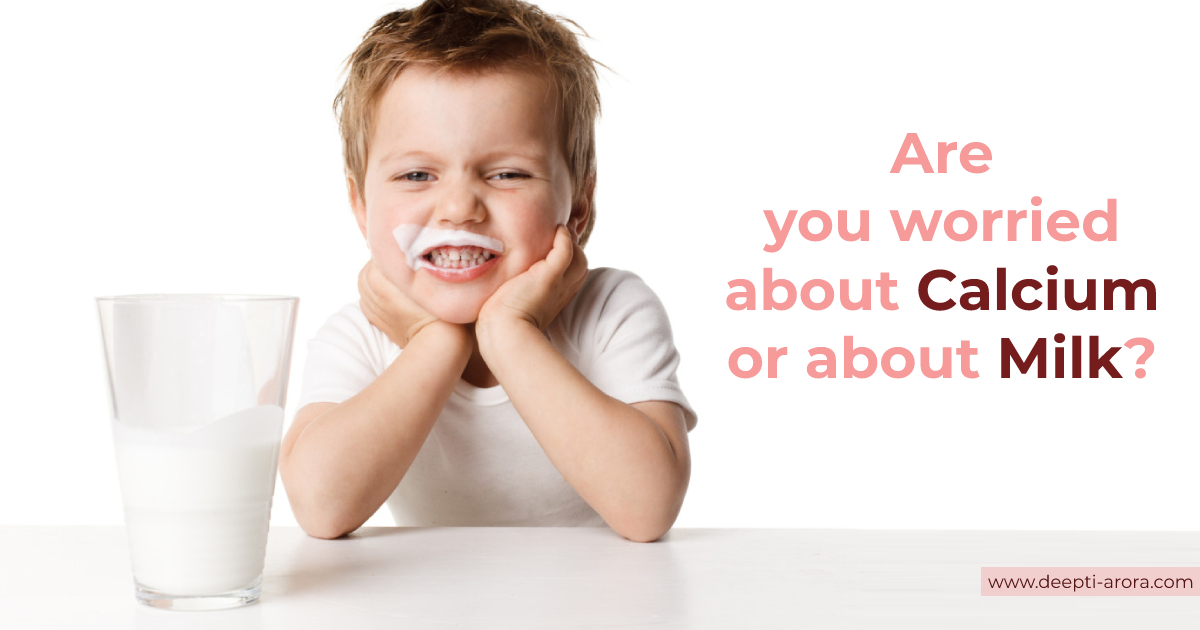Are you worried about Calcium or about Milk?
Are you worried about Calcium or about Milk ?
Hey dear mom, I understand why you are so worried? I have been there too!!
You spend loads of time in scrolling the web which milk is best or is important for my child.
What can I do if my baby doesn’t drink milk?
I know, your phone is piled up by many articles on this topic.
But it’s so difficult to choose which is best. Yes, I got you!!
Whether it is an infant who is drinking breast milk or iron-fortified baby formula, a preschooler drinking chocolate milk, or a teenager drinking low-fat milk, milk is an important part of child nutrition. I believe this truth.
After all, milk has even had its own food group. Yes, it does a body good, it’s a natural thing to drink and it builds strong bones. Right?
but if your child doesn’t drink milk, please don’t get frustrated.
so many many types of milk are available to offer to kids and even to have ourselves & I will take you through all details so that you can choose the best for your loved one.
Although most parents think of cow’s milk (including me earlier) when they think of milk, there is actually a wide variety of milk and other non-dairy milk drinks that can usually be a healthy and delicious substitute for milk.
Types of Milk
- Whole milk
Reduced-fat (2 per cent), low-fat (1 per cent) and fat-free or skim cow’s milk - Organic milk
- Flavored milk, such as chocolate milk and strawberry milk
- Rice milk
- Almond milk
- Soy milk
- Goat’s milk
- Coconut milk
What does milk contain:
- Vitamin D
- Calcium
- Vitamin A
- Protein
- Vitamin B12
- Potassium
And actually, how much milk do your kids need to get the above nutrients? This becomes an even more significant question in our minds right.
It depends on how old they are, but the usual recommendations are for children who are:
2-8 years old drink 2 cups of milk each day
9-18 years old drink 3 cups of milk each day
Drinking too much milk isn’t a good idea though. In addition to the extra calories, drinking too much milk is a risk for iron deficiency anemia.
But don’t you think just having a glass of milk is overhyped?
Do kids really need to guzzle the white stuff? Is it really a superfood? The answer is not really if its becoming a struggle to feed your child…
Although milk is a good source of protein, calcium and vitamin D, other food sources also provide these nutrients.
Above all, there’s no evidence that drinking milk reduces bone fractures, and drinking too much can lead to anemia and may contribute to obesity, experts now say.
So if your family isn’t currently a big milk fan, don’t worry.
You can give your little one all the nutrients he needs to grow without adding a glass of cow’s milk to his meal plan. There are many ways, believe me.
Just make sure he gets enough CALCIUM, which is essential for bone growth and development and teeth health. Depending on age, your toddler needs from 500 to 1,300 milligrams per day.
Here are 6 ways for your little one to bone up on CALCIUM:
- Yoghurt and cheese Like all dairy products, yoghurt and cheese are full of calcium and are thus a great way for your child to end his meal. You can pair cheese with fruits and crackers, or simply offer yoghurt as a dessert. Add cheese to pasta, eggs, and other baked dishes; you can serve yoghurt as a dip for fresh fruits, or blend cheese into mashed potatoes and meatballs. Also, cook or bake with Greek yoghurt to increase calcium content.
- Orange – 1 Orange: 60 mg of calcium We all know orange helps in boosting our immune system. And this magical fruit is also on the list of high calcium foods with vitamin D, which is crucial for the absorption of calcium in the body. One medium size of orange contains 60 mg of calcium.
- Soy Milk – 1 Cup Milk: 60 mg of calcium It’s a myth that only dairy products contain calcium. Non-dairy products like fortified soy milk can be amazing high calcium foods and provide both calcium and vitamin
- Almonds– 1 Cup (roasted): 457 mg of calcium With a stupendous 457 mg of calcium, almonds top the list of high calcium foods. High on proteins as well. Also, almonds are an amazing source for improving your memory. Having some of these protein-rich nuts every morning will be a sure win-win for your health.
- Figs– 1 Cup (dried): 242 mg of calcium Indulge in this sweet dessert-like fruit loaded with fiber and potassium. With a whopping 242 mg of calcium per 1 cup of dried fig, this sticky fruit helps in strengthening your bones. Also loaded with magnesium, this fruit helps in keeping the heartbeat steady and maintaining muscle function. It stands a strong position in the list of foods rich in calcium.
- Green Leafy Vegetables – 1 Bunch: 336 mg of calcium High in dietary fiber, green leafy vegetables are one of the high calcium foods. With a number of options like spinach, kale, celery and broccoli, these veggies are also rich in potassium and magnesium.
Don’t worry if your child is not taking milk, but do take care that you are offering calcium-rich nutrients to have strong bones and good teeth health.
For a toddler, these are recovery foods in their growing age, ensure to keep it handy and be ready to offer your calcium.
Are you daily fueling calcium? Share in comments. And I will love to love to talk about this white creamy ingredient and everything about it.
And if you want a structured, balanced daily calcium intake, I have all the support for you. Sign up for a monthly enhanced nutrition plan & Tada, you’re sorted with daily challenges of feeding healthy choices. Nourishing takes care of all.
Enjoy. Happy Feeding!
Deepti







